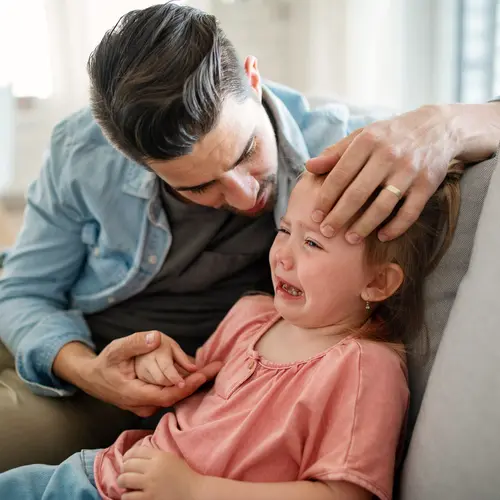Each month WebMD the Magazine puts your questions about weight loss and fitness to top exercise and motivational experts. In our July-August 2010 issue, Moira Lafayette, a mother in Madison Wisconsin, asked for advice on helping her daughter, who had been obese, lose more weight. We turned to Alexandra Adams, MD, PhD, a childhood obesity expert at the University of Wisconsin Health Pediatric Fitness Clinic, for advice.
Moira's question:
My daughter, Clarice, couldn't regulate when enough food was enough. Most people might eat two pieces of pizza, but she would eat four. At her peak, she weighed about 290 pounds. We met with nutritionists and dietitians, and Clarice got involved with soccer and basketball, which helped her get down to about 200 pounds by the beginning of high school. But she still wants to lose about 25 more pounds. What can she do?
Adams' advice:
It's fine if your child is in the 95th percentile for height and weight. But when the weight figure is much greater than the height figure, that becomes cause for concern.
Here are some helpful tips:
Be alert. Watch for signs of trouble brewing, especially if there's been stress in the house -- a divorce, a move, job loss. Does your child eat large portion sizes or eat excessively after hours? Are you finding food hoarded in your child's room? These may be red flags pointing to a growing problem with food and weight.
Make it a family affair. Giving an overweight child a "special diet" can be very damaging. The whole family needs to make healthy eating changes, such as replacing the sugary snacks in the cupboard with healthy ones, not eating in front of the TV, and finding time for meals together.
Transform your table. Keep serving dishes in the kitchen so grabbing seconds isn't automatic. Many kids, especially those who are overweight, lose internal satiety cues by age 3. Also make sure your child doesn't skip breakfast; it's the key to losing weight.
No gain, no pain. Children's weight loss is different from adult weight loss because kids are still growing. If children can keep the same weight for an entire year, their mass will shift and their body will be healthier. They're getting more fit metabolically and physically. So parents should try to focus more on weight control.
Since starting high school, Clarice is making good progress and losing weight slowly and steadily. "It's become a lifestyle for her and for our whole family," Moira says.
Childhood Obesity Statistics
Moira's daughter, Clarice, is not all that unusual. Today, about 17% of all children ages 2 to 19 in America are obese. That's more than double the number of children who were obese 30 years ago. And some ethnic groups are even more likely to be obese -- for instance, a whopping 35% to 40% of Hispanic and African-American children are obese.
That's really not healthy. Studies show that obese children and adolescents are more likely to have risk factors associated with heart disease (including high blood pressure, high cholesterol, and sleep apnea) than lean children as well as have type 2 diabetes, early puberty, and emotional difficulties, including depression, poor body image, low self-esteem, and a higher risk of eating disorders. In addition, about 80% of children who are obese when they're 10 to 15 years old are obese 25 years later.
A solution? By getting more active and eating more healthy foods - with the whole family -- children can develop the lifelong habits needed to prevent -- or heal -- childhood obesity.


